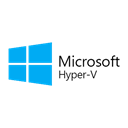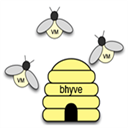Uncovering the Best Xen Alternatives for Your Virtualization Needs
Xen.org, home of the Xen hypervisor, is a powerful open-source bare-metal hypervisor that allows multiple operating systems to run concurrently on the same hardware. While Xen is a robust solution, various reasons might lead you to seek a Xen alternative, whether for specific feature sets, different platform compatibility, or simply exploring other highly capable virtualization options. This article dives into some of the best alternatives available for your virtualization projects.
Top Xen Alternatives
Whether you're looking for open-source flexibility, enterprise-grade features, or lightweight solutions, there's a Xen alternative perfectly suited for your virtualization environment. Let's explore some of the top contenders.

VirtualBox
VirtualBox is a powerful x86 and AMD64/Intel64 virtualization product ideal for both enterprise and home use. As a free and open-source solution, it supports a wide range of platforms including Mac, Windows, Linux, BSD, and Solaris. It's an excellent Xen alternative due to its ease of use, feature-rich nature, and support for opening VMDK files, making it highly versatile for various virtualization tasks.

KVM (Kernel-based Virtual Machine)
KVM is a full virtualization solution specifically for Linux on x86 hardware with virtualization extensions. It's a free and open-source bare-metal hypervisor, similar to Xen in its core functionality, but deeply integrated into the Linux kernel. KVM offers high performance and scalability, making it a strong Xen alternative for Linux-centric environments, further extensible by plugins and extensions.

OpenStack
OpenStack is a comprehensive open-source cloud computing platform that includes virtualization capabilities. While not a direct hypervisor like Xen, it orchestrates virtualization resources across a large infrastructure, making it a powerful Xen alternative for building public and private clouds. It's free and open-source, primarily web-based, and offers features like Cloud IDE and Web Development functionalities as part of its broader platform.

Portable Virtualbox
Portable VirtualBox is a free and open-source tool that allows you to run any operating system from a USB stick without a separate installation. It's essentially a portable version of VirtualBox, offering virtualization on Windows. This makes it a convenient and flexible Xen alternative for users who need to run virtual machines on different machines without installation overhead, emphasizing its portability and GNU/Linux-libre compatibility.

VMware vSphere Hypervisor
VMware vSphere Hypervisor (based on ESXi) is a free bare-metal hypervisor that virtualizes servers to consolidate applications on less hardware. While offering commercial versions with more features, its free tier provides robust virtualization capabilities for Windows, Linux, NVIDIA vGPU, and AMD MxGPU. As a leading industry player, VMware vSphere Hypervisor is a strong commercial Xen alternative for those seeking a highly reliable and performant virtualization platform.

Microsoft Hyper-V Server
Microsoft Hyper-V Server is a stand-alone, commercial bare-metal hypervisor from Microsoft, providing a reliable and optimized virtualization solution primarily for Windows and Linux environments. It's designed to improve server utilization and reduce costs, making it a viable Xen alternative for organizations deeply invested in the Microsoft ecosystem and seeking enterprise-grade virtualization features.

XCP-ng
XCP-ng is a high-performance, enterprise-level hypervisor built on the Xen Project, making it highly compatible with existing Xen environments. It's free and open-source, runs on Linux, and supports NVIDIA vGPU and AMD MxGPU. XCP-ng distinguishes itself with features like live migration, clustering, disaster recovery, and high availability, making it an excellent, community-driven Xen alternative that offers similar capabilities with a rich ecosystem.

Citrix Hypervisor
(formerly XenServer) Citrix Hypervisor is a leading virtualization management platform optimized for application, desktop, and server virtualization infrastructures. It offers both freemium and commercial tiers, and is open-source, supporting Windows, Linux, and various GPU technologies like RadeonPro, NVIDIA vGPU, and AMD MxGPU. As it originated from XenServer, it's a direct and powerful Xen alternative, providing enterprise-grade hypervisor features.

bhyve
bhyve (pronounced "bee hive") is a type-2 hypervisor that runs on FreeBSD. It's a free and open-source solution designed for BSD and FreeBSD platforms, focusing on providing efficient virtual machines. For users specifically working within the FreeBSD ecosystem, bhyve stands out as a strong, native Xen alternative.

LXC Linux Containers
LXC Linux Containers offer an environment very similar to a VM but without the overhead of running a separate kernel. This open-source solution for Linux focuses on container virtualization and sandboxing. While not a bare-metal hypervisor like Xen, LXC provides a lightweight and efficient Xen alternative for users who primarily need isolated environments on Linux, excelling in container virtualization and sandboxing.
Choosing the right Xen alternative depends heavily on your specific requirements, existing infrastructure, and technical expertise. Whether you prioritize open-source flexibility, commercial support, or unique platform compatibility, there's a powerful virtualization solution waiting to be explored. Evaluate each option based on your needs to find the best fit for your virtualization strategy.